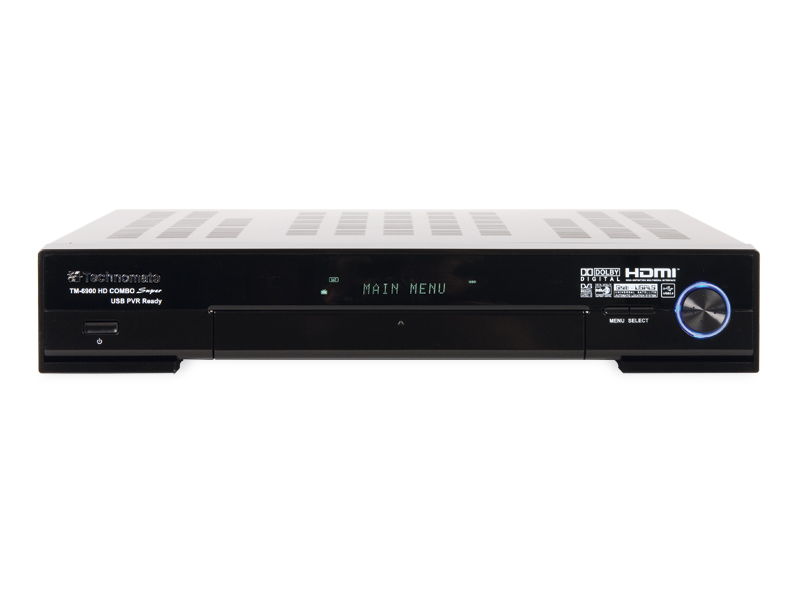TechRadar Verdict
With a nice and quick blind search function you're sure to have this box set up in no time at all, however the PVR options could be better
Pros
- +
Very flexible
- +
Excellent AV
- +
Fast and revealing blind search
Cons
- -
Basic PVR
- -
Can't use DTT and satellite tuners simultaneously
- -
More control over blind search parameters could be offered
Why you can trust TechRadar
It's over twice the price of the Manhattan PLAZA XT-CM but the TM-6900 HD Combo Super gives you get plenty for your money.
For a start, it's ready for hi-def, with DVB-S2 tuners, H.264 support, HDMI and component outputs capable of delivering 1080i – standard-def is automatically upscaled to the chosen resolution. SD alternatives include two Scarts.
There's the basic DTT capability – the HD Combo Super can receive Freeview out of the box – and USB/SATA PVR upgradability.
Pay-TV fans will like the two CI slots and multi-CAM card reader, and an Ethernet port with networking ability to come.
Motorised dishes are supported in both DiSEqC 1.2 and USALS guises – as are DiSEqC 1.0/1.1 switchboxes. Other features include an eSATA alternative to USB, JPEG/MP3 playback and UHF modulator.
The HD Combo Super's menu system is fast and friendly yet comprehensive. Digital terrestrial and satellite have independent search systems.
Twin tuners
Terrestrial is simple and effective, concentrating on a single multiplex or the whole band.
Satellite scans seek out all broadcasts or just FTA; if you're using a multi-satellite setup then all birds can be scanned automatically.
Manual scanning concentrates on single transponders, with PIDs defined manually or automatically. And blind searching? You're given choices of vertical and/or horizontal and all channels or just the free ones.
As with the Manhattan, stop/start frequencies can be specified – useful if you know what part of the band you want. Early firmwares allowed you to switch between 2MHz and 4MHz steps; there's no longer such a setting and so switching is now presumably automatic.
What a pity you don't get the Manhattan's ability to choose a symbol rate range. Scanning proved (with the exception of Sirius) to be noticeably faster; more channels were found, too. But then again, this is a more expensive unit equipped with faster processing.
AV quality – with HD channels especially – is a treat.
